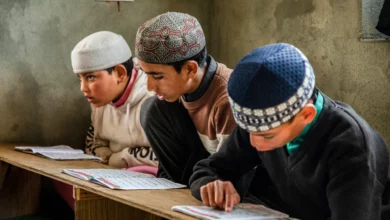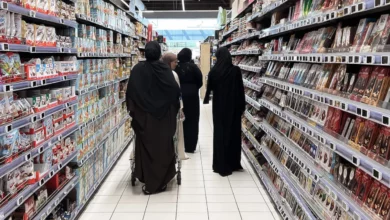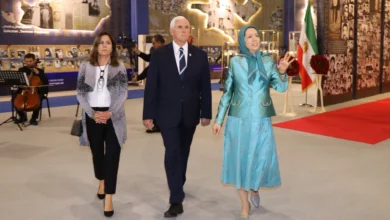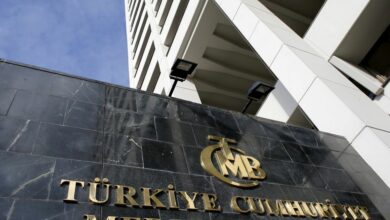Manama–While sectarian politics dominate the Bahraini arena, the history of political activism and opposition in the kingdom was not always based purely on the 7th century schism in the Islamic body politic.
Just on Thursday night, tensions rose after a street battle between Sunnis and Shia's erupted. According to the Associated Press, one of the Shiites injured, 23-year-old Hussein Badr, said the attackers appeared to Sunnis from other parts of the Arab world given Bahraini nationality under a policy to boost Sunni numbers.
Yet secular groups have played an active role in forming the political consciousness of Bahrainis today by leading many popular movements from the 1950s through the 1980s. Although they are not longer considered popular movements due to their limited mobilization capabilities relative to religious groups, they continue to contribute to the national discourse on an intellectual and organizational level, especially through the role of their more prominent members.
The National Coalition, the leading opposition group participating in the protests, boasts the affiliation of seven main institutions, two of which play no part in sectarian politics.
The National Democratic Action Society (Waad) and the Progressive Democratic Tribune (al-Minbar) are two of the less recognized leftist names today in Bahraini opposition despite their deep-seated roots in Bahraini politics and activism.
Both groups are relatively new but have a clear lineage to some of Bahrain’s more well-known activists, especially those from the 1970s.
Waad is a leftist political party formed in 2000 that traces its roots back to the radical left-wing group, the Popular Front for the Liberation of Bahrain. Its ideology is rooted mainly in Arab Nationalism. Its headquarters in Um al-Hassam is fittingly adorned with flags from different Arab countries, as well as photos of its past heros, such as pan-Arab leader and late Egyptian President Gamal Abdel Nasser.
Muneira Fakhro is a member of the group’s central planning committee who ran in the 2006 parliamentary elections and lost. Despite a poor showing in the 2002 and 2006 elections, she believes Waad still has a very important role to play. “Since 1956 up until 2001, the government has repeatedly made promises and always went back on (them) We were there the whole time, and know now when to trust and when to be cautious,” she said.
Presently, Waad is on the ground at Pearl Roundabout and elsewhere promoting democracy. “If the democratic mechanism is in place, there will be true democracy,” said Zaynab al-Durazi a leading member of Bahrain Center for Human Rights as well as Waad.
Al-Minbar was established in 2002, but similarly has roots that date back more than half a century in Bahraini politics. It started out as the National Liberation Front, which aimed at combating British occupation. After independence in 1971, it became the leading force in Bahraini politics, winning 40 percent of elected seats in the 1974 election that was based on the 1973 Constitution.
The original group, which has its ideological foundations in Marxism, was persecuted after 1975, when the government cancelled the 1973 Constitution and sent many of their leaders to exile through to the mid-1980’s. Al-Minbar was founded essentially on Marxist-Leninist principles, but now counts itself as a multi-denominational leftist party.
“The 1973 Constitution and the 2001 National Action Charter both guaranteed that the people would essentially have the right to rule. The government overturned both,” said Al-Minbar General Secretary Hassan Madan.
In 2002, the government overturned the main promise of the 2001 charter, which was to ensure that all legislation goes only through the elected People’s Assembly, and decreed instead that it would also go through the royally -appointed and supposedly consultative Shura Council. “The government basically staged a coup on the constitution,” Fakhro said.
Both groups claim to have no issue with the religious nature of the other members of the coalition. “If we just ensure the correct democratic mechanisms are in place, we will have a true democracy,” al-Durazi said.
In the current situation however, both groups would be effectively obsolete without the mobilization power of groups such as Wifaq, the country’s main Shia opposition group.
Some of the group’s detractors and those who oppose the Pearl Roundabout protests in general believe that the religious opposition groups are using groups like Waad and al-Minbar to create the semblance of a multi-sectarian opposition coalition.
“These groups are being used, they don’t know that the majority of the opposition would like to decrease the influence of the Shura Council, so that they have an Islamic majority to Islamize the country,” said Shura Council member Samira Rajab.
Having mainly come from Sunni and Shia families, members of Waad and al-Minbar use their knowledge of each sect to attempt to diffuse the sectarian image of the situation.
“Shia are raised knowing to only do things in the context of the rituals that they were brought up in. That is why the chanting all sounds religious. I am not religious, but I understand where they come from,” said Durazi.
Madan also attempts to bring a touch of realism to his discourse and what he would like al-Minbar to contribute. “At the end of the day, Bahrain is part of the GCC system. We have to keep that in mind. The region is used to having a monarch, but we want an a-religious constitutional monarchy,” he said.
As of yet, both groups believe that the government has offered no real concessions. “Real changes are needed if we want to begin a dialogue that we intend to change the country with,” Madan said.




